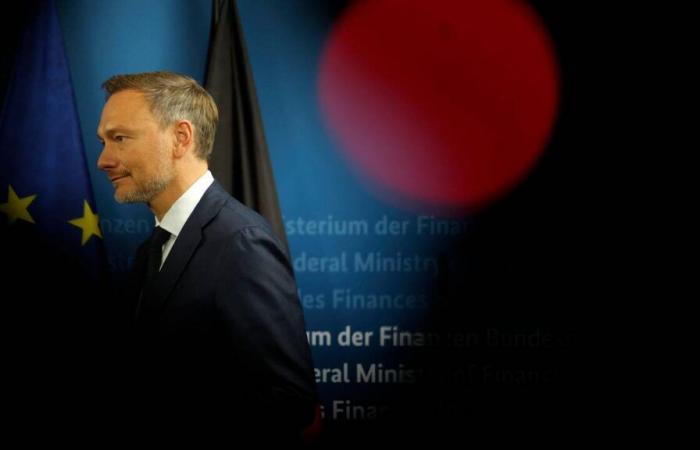Shortly afterwards, the German liberal party FDP announced that all of its ministers would leave the coalition government of Olaf Scholz, thus depriving the chancellor of a majority in the Chamber of Deputies.
This rupture, recorded at the end of a day of talks organized at the chancellery, puts an end to Olaf Scholz’s efforts in recent days to save the tripartite government coalition made up of his social democratic party, environmentalists and liberals, at loggerheads drawn for months and all very unpopular in public opinion.
The question of confidence submitted to deputies
Faced with “ultimatums” from his Minister of Finance, head of the liberal camp, Olaf Scholz judged that he had no choice: he first decided to dismiss Christian Lindner, the government’s big financier and president of the liberal party. FDP, then announced that he would ask the deputies the question of confidence.
Elected representatives of the Bundestag will decide on January 15 whether they want early legislative elections to be held before the scheduled date in September 2025. This could be the case “at the latest at the end of March,” indicated Olaf Scholz.
For his Minister of Economy and Climate, the ecologist Robert Habeck, there is no doubt: his party will support the path of “orderly early elections”.
The divorce recorded
Olaf Scholz and Christian Lindner aired their grievances via microphone. Christian Lindner has “too often betrayed my trust”, lamented Olaf Scholz, denouncing his “selfish” behavior. The champion of budgetary austerity immediately responded, accusing the chancellor of leading the country “into a phase of uncertainty” with this “calculated rupture of this coalition”.
The divorce was recorded after a day of crisis talks organized at the chancellery to try to save the executive led by Olaf Scholz since the end of 2021.
Coalition ruptures are very rare in Germany and Olaf Scholz wanted to lead his until the next legislative elections scheduled for September 28, 2025. But the government team has been undermined for months by political dissensions, on the economy and immigration, and by personal quarrels.
Disagreements focus on solutions to revive Europe’s largest economy, which is threatened with recession for the second year in a row. Olaf Scholz’s social democrats want to preserve their social priorities; Robert Habeck’s Greens are pushing to fight climate change despite the costs of the transition while the liberals are stubbornly focused on respecting Germany’s drastic constitutional limits on budget deficits and debt.
The American presidential election has weakened an already shaky coalition
Olaf Scholz thought that the election to the presidency of the United States announced the same morning of the Republican Donald Trump, a fan of protectionism and diplomatic confrontations, would force his fragile coalition to close ranks.
The opposite happened. According to the daily Bildthe Minister of Finance argued during the crisis meeting that this election and its future impact made a change of economic course in Germany even more urgent.
The Green Vice-Chancellor and Minister of the Economy Robert Habeck had urged everyone to come to their senses, stressing that with Trump’s return to power, “the government must be fully capable of acting”.






